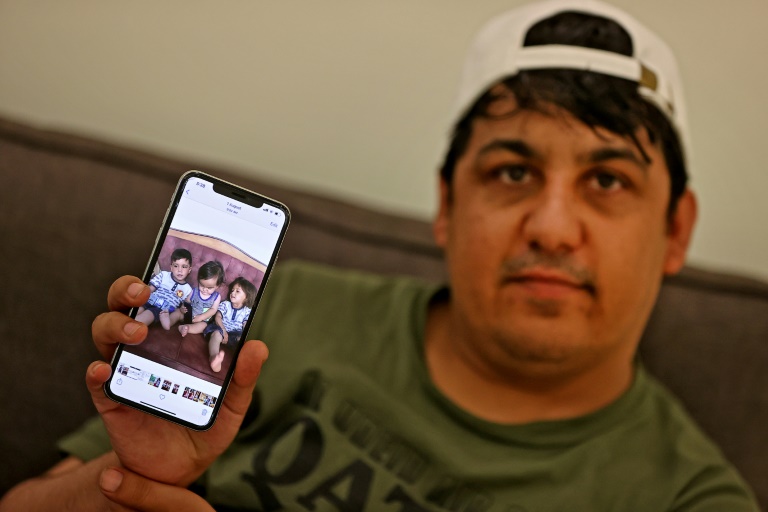Qatar has staked much on hosting the 2022 World Cup, but the official accommodation has now assumed a different role from that envisaged by the organising committee — housing Afghan refugees.
“In our home, we don’t have facilities” like air conditioning or flat-screen TVs, says 28-year-old Ahmad Wali Sarhadi, who arrived a few days ago and is now one of around 600 refugees housed in the complex, most of them journalists.
The Qatari capital Doha has become a major transit point for refugees fleeing the Taliban takeover of Afghanistan and who were brought out on evacuation flights.
Although he is comfortable in the clean, furnished ground floor space he shares with 24-year-old Khalid Andish, Sarhadi says he has sleepless nights worrying about his family back home.
High doses of antidepressants have taken the edge off his emotions, and he unpacks his experiences in a swift, constant flow of words.
Sarhadi’s new situation would have been impossible to imagine as recently as late August, when he was still living in Kandahar in southern Afghanistan, with his wife and five children, aged between two and 13 years.
Having worked both as a journalist and for an American-funded aid group, he says he was on the Taliban’s hit list for two-and-a-half years, and sounds like a man still on the run even safely in Qatar.
“When we heard them entering the street, there was a two metre wall by my place — I jumped over to the other side” to escape.
He called his wife to say that he was on his way to get a taxi to go to Kabul, urging her not to tell anyone even as “she was crying”.
“I put (on) a turban to look like a Taliban” to avoid detection, he adds. Later “I tried to call my family but the telephone was down”.
Once in the capital, he turned up at the airport at 7:00 am every day in his efforts to get through the gates.
Contacts at the Committee to Protect Journalists and other organisations helping Afghan media workers ultimately passed his name to the Qataris, who in turn got him on a plane out.
– On the Taliban’s list –
Andish, who worked at a neighbourhood radio station in Kabul, says he knew he “was on the hit list of the Taliban” before he left.
With no wife or children of his own, he has had no news of his brothers and sister since he fled on August 15.
“They are in danger,” Andish says. “They might target my family if they don’t find me.”
His ambition is “to serve my country, as a journalist, a social activist, a teacher, a journalist trainer”, but he adds that “for now I have no hope to go back to Afghanistan”.
Balancing his smartphone on a left hand whose fingers were destroyed by a Taliban bomb more than a decade ago, Sarhadi showed off pictures, a smiling selfie of his little daughter glowing out from the screen.
He and the other refugees chatted in one of the avenues separating rows of identical houses in the Park View Villas complex, built to house 1,500 members of delegations, media and guests at next year’s World Cup in November and December.
The ultra-rich Gulf state’s aim was to surge out of relative obscurity by hosting one of the world’s biggest sporting contests.
As fate would have it, Qatar has enhanced its status on the world stage by mediating talks and facilitating the evacuation of around 50,000 people from Afghanistan since the Taliban claimed power on August 15.
– Unknown destination –
Sarhadi believes that “no-one but the Qataris cares about us”.
He says that weeks ago he turned down an offer to study for a master’s degree in journalism in India.
“There’d need to be financial support,” he says. “India can’t support its own population, how could they help me?”
While others in the World Cup complex hope they will find asylum — in Ireland, Iraq, Rwanda, the United States, Britain — Sarhadi has no idea where he might end up.
“I don’t know who is going to accept me as a refugee,” he says.
Beyond a rucksack, smartphone and computer, the only real wealth he was able to salvage from Kandahar is a sheaf of identity papers and qualifications — his whole life tucked into a plastic pouch.
“Physically I’m in Doha, Qatar, but mentally I’m in Afghanistan with my family,” Sarhadi says.
“I’m afraid something will happen to them. I’m like a dead person.”










